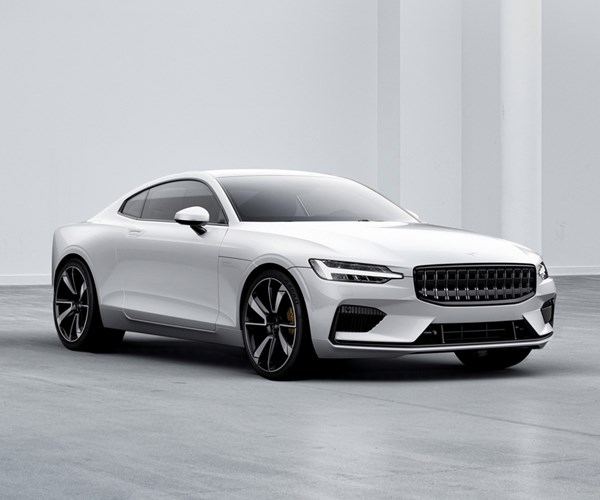Volvo performance brand features carbon fiber bodies
Volvo launches its Polestar performance brand, the first vehicle of which, the hybrid Polestar 1, will feature a carbon fiber body structure. The Polestar brand is launch with three vehicles, all either hybrid or all-electric.

Carbon fiber body structure for the Volvo Polestar 1 hybrid vehicle.
Automaker Volvo Car Group (Gothenberg, Sweden) made news last summer when it announced that by 2019 all of its vehicles would be hybrids or powered solely by electric motor. As part of that strategy, Polestar, Volvo Car Group’s performance brand, has revealed its future as a new standalone electric performance brand.
Polestar has confirmed plans for its first three models, a new purpose-built production facility in China and the 600-hp Polestar 1, the company’s first car, which is set to roll off the production line in mid-2019.
The Polestar 1 is a two-door, 2+2 seat grand tourer coupé with an “electric performance hybrid” drivetrain. This electric car, supported by an internal combustion engine, has a range of 150 km on electric power alone and features a carbon fiber composite body (see photo) that reduces weight and improves torsional stiffness by 45%, as well as lowers the car’s center of gravity. The Polestar 1 will be built in a purpose-built Polestar Production Centre in Chengdu, China that is expected to open in mid-2018.

Volvo Polestar 1 hybrid vehicle.
ÂÌñÏ×ÆÞ queried Volvo for details regarding the carbon fiber structure for the Polestar 1, but the automaker declined to share design or manufacturing details at this time.
All future cars from Polestar will have a fully electric powertrain. Polestar 2 will start production later in 2019 and will be the first battery-electric vehicle (BEV) from the Volvo Car Group. It will be a mid-sized BEV, joining the competition around the Tesla Model 3, and with consequently higher volumes than Polestar 1. The initial phase of the Polestar rollout will then be completed by the arrival of a larger SUV-style BEV, the Polestar 3.
Volvo Car Group is owned by Geely Automobile Holdings of China (Hangzhou, China), which already makes electric vehicles for the Chinese market. There is strong interest in electric vehicle technology in China as the country seeks ways to reduce life-threatening pollution caused by internal combustion engines.
Related Content
-
Infinite Composites: Type V tanks for space, hydrogen, automotive and more
After a decade of proving its linerless, weight-saving composite tanks with NASA and more than 30 aerospace companies, this CryoSphere pioneer is scaling for growth in commercial space and sustainable transportation on Earth.
-
“Structured air” TPS safeguards composite structures
Powered by an 85% air/15% pure polyimide aerogel, Blueshift’s novel material system protects structures during transient thermal events from -200°C to beyond 2400°C for rockets, battery boxes and more.
-
Carbon fiber, bionic design achieve peak performance in race-ready production vehicle
Porsche worked with Action Composites to design and manufacture an innovative carbon fiber safety cage option to lightweight one of its series race vehicles, built in a one-shot compression molding process.






